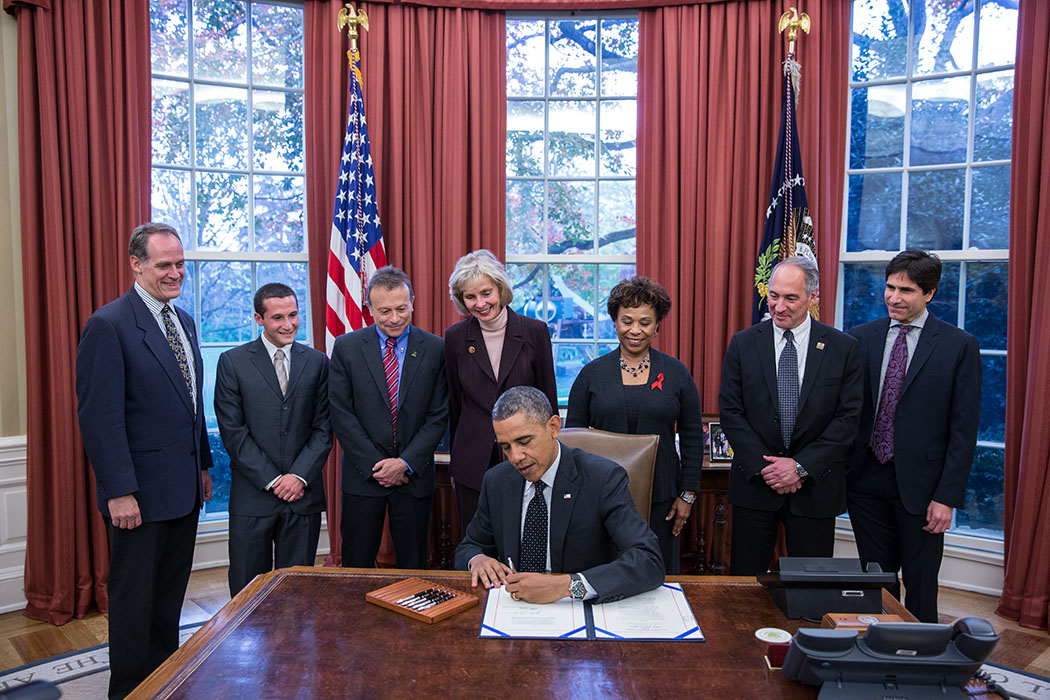Dr. Peter Stock Instrumental in Passage of Bill Lifting Research Ban on HIV Organ Transplants

President Barack Obama signs S. 330: HIV Organ Policy Equity Act during a signing ceremony in the Oval Office, Nov. 21, 2013. (Official White House Photo by Lawrence Jackson)
MSNBC reports on President Obama's signing of a bill that ended a decades-old policy that banned organ donations from one HIV-positive person to another. A clinical trial led by UCSF transplant surgeon Peter G. Stock, M.D., Ph.D. was instrumental to the passage of the Hope Act that lifted the ban.
The HIV Organ Policy Equity (HOPE) Act allows organ transplants between HIV-infected individuals for medical research in the hopes that the practice will eventually become more commonplace. According to the United Network for Organ Sharing, there are more than 120,000 people on the waiting list for organs; providing HIV-positive donors with another pool to receive organs from could shorten the waiting time for others on the list.
“For decades, these organ transplants have been illegal. It was even illegal to study whether they could be safe and effective. But as our understanding of HIV and effective treatments have grown, that policy has become outdated. The potential for successful organ transplants between people living with HIV has become more of a possibility,” Obama said in a statement released Thursday.
The bipartisan bill, which was unanimously passed through the Senate in June, was introduced by Democratic Sen. Barbara Boxer and Republican Sen. Tom Coburn. Among the bill’s supporters were Democratic Sens. Elizabeth Warren, Richard Blumenthal, Mark Pryor, and Republican Sens. Rand Paul, Michael Enzi, and Mark Kirk.
The House then passed the bill earlier this month by a voice vote—a move Rep. Andy Harris, the first Republican in the House to support the measure, said “will improve lives and have a positive impact on our healthcare system.”
“The HOPE Act changes an outdated law by making government work in a more efficient and effective manner for all patients needing transplants–both those with HIV and those without–which is exactly what the American people expect from their elected officials,” Harris, an anesthesiologist, said in a statement.
